You rely on your air conditioner for fast and efficient cooling throughout the hot Hinesville, Georgia, summers, but do you know how it really does its job? This essential home comfort installation is hard at work keeping you comfortable, using a fascinating technology behind the scenes. Take a quick look at how it all works, and find out what you can do to make sure that your air conditioner operates as efficiently as possible.
The Technical Side of Your Air Conditioner
Your air conditioner chills warm air in the home using a refrigeration process similar to that which keeps the food in your fridge fresh and cold. This technology relies heavily on a chemical known as a refrigerant. Though you’re probably most familiar with refrigerant in its liquid form, it spends much of its time in your air conditioner as a gas.
Inside the home, your system consists of a fan and evaporator coils. These coils are filled with refrigerant. The fan blows air over the chilled coils and into the home, cooling it. Inside the evaporator, the refrigerant’s pressure drops, changing it into a gas. From here, it moves to the compressor, located outside the home. As the name suggests, the compressor compresses the gas, increasing its temperature and pressure.
The pressurized gas progresses to the condenser, where the heat dissipates. The gas condenses back into its liquid state as it cools. From here, it begins the cycle again in a continuous circle, absorbing heat inside the home, carrying it away, and returning in a cooled state to help chill the air again.
Air Conditioning and Humidity Control
Your air conditioner doesn’t only cool the air; it also removes humidity. In fact, this effect is what air conditioning was originally invented for. Willis Haviland Carrier developed the technology in 1902 to lower the humidity levels in a Brooklyn publishing company. Carrier used fans to blow air across cool pipes. Cold air can’t carry as much humidity as warm air can, so the result was a room with a lower capacity for humidity.
This same property applies to your home’s air conditioning system today. When the air in your house is cooler, it has a lower capacity for humidity, and the moisture in the room drops accordingly. The warmer your air is, the more moisture it can hold, which is why summer days can be so sticky but winter air dries your skin out.
The Importance of A/C Maintenance
Your air conditioner runs refrigerant through a continuous cycle, changing it from a liquid to a gas and back again countless times. This naturally puts a strain on the system components. The evaporator and condenser coil collect dust and dirt as air is blown over them repeatedly. Coil fins easily bend, blocking airflow, and the condensate drain that vents humidity pulled from the air may clog if left untended.
Regular maintenance is essential to keep your air conditioner clean and efficient. You should schedule a tune-up once a year, timing it for the spring before you turn your system on for the first time. During this visit, your HVAC technician will tighten electrical connections, lubricate moving parts, and thoroughly clean the system.
Filter Operation and Maintenance
The filter is another important part of your air conditioning system. Air passes through the filter on its way into the system. An efficient filter captures dust and dirt, reducing the amount that can reach and accumulate on the coils. The filter is also designed to clean your air with each pass, lowering the levels of pollen, dander, and pollutants in the home.
Your air filter is a powerful tool for improving indoor air quality, but it can only do its job when it is changed regularly. You should swap your filter for a clean one every one to three months.
Is your air conditioner operating at peak performance levels? You should schedule a tune-up if you haven’t had one during the past 12 months. Contact Dyess Air & Plumbing at (843) 242-0855 to make your appointment now. We’ll help you keep your system clean and efficient, helping you achieve maximum comfort all summer.


